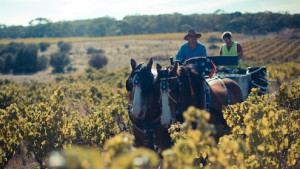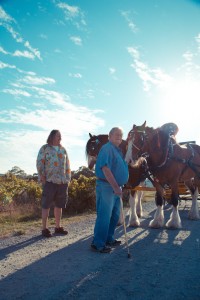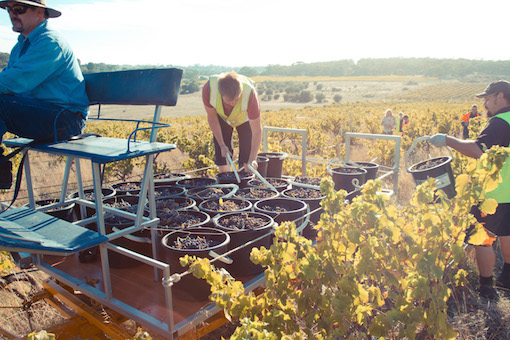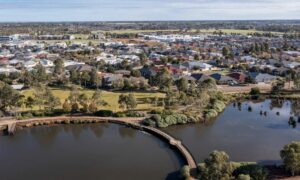 For the first time in over 50 years a d’Arenberg vineyard has felt the gentle clip clop of a horse’s hooves between its vines, as Chester Osborn embarks on an experiment with the oldest bush vine Grenache vineyard in the McLaren Vale wine region.
For the first time in over 50 years a d’Arenberg vineyard has felt the gentle clip clop of a horse’s hooves between its vines, as Chester Osborn embarks on an experiment with the oldest bush vine Grenache vineyard in the McLaren Vale wine region.
Horses have played a large part in d’Arenberg’s history, dating back to 1912 when Joseph Osborn sold his prize winning stable of horses to purchase the property in McLaren Vale. d’Arry Osborn, third generation family member, recalls the last time horses were used to work in the vineyard.
“I’ve always had fond memories of Clydesdale horses,” he said. “1943 was the first year that I was home from school and went straight into vintage. They weren’t very big vintages back then, but we still used six horses to do the ploughing and it was hard work. In 1947 my father bought the first rubber-tyred tractor into McLaren Vale after the war, but we still had horses up until the late 1950’s, using them for other things around the property.”
 Two Clydesdale horses, 16 year old Bill and 9 year old Monty, have a combined horse power of 1.8 tonnes, and last year Bill was crowned the Supreme Harness Horse Champion at the Royal Adelaide Show with Monty coming a close second. They were put to work on an 8 acre, 98 year old vineyard located adjacent to the d’Arenberg property, which contributes fruit to The Beautiful View Grenache. This wine is part of the Amazing Sites range, which is designed to showcase the different personalities of vineyards.
Two Clydesdale horses, 16 year old Bill and 9 year old Monty, have a combined horse power of 1.8 tonnes, and last year Bill was crowned the Supreme Harness Horse Champion at the Royal Adelaide Show with Monty coming a close second. They were put to work on an 8 acre, 98 year old vineyard located adjacent to the d’Arenberg property, which contributes fruit to The Beautiful View Grenache. This wine is part of the Amazing Sites range, which is designed to showcase the different personalities of vineyards.
“Here at d’Arenberg our philosophy has always been minimal intervention, both in the vineyard and the winery,” Chester said. “On this vineyard, there has been no fertiliser, minimal drip irrigation, no soil cultivation, no herbicide and no fungicide sprays. I want this fruit to be as close to nature as possible, a pure expression of its surroundings, where things like the soil, geology and age of the vines all impact the resulting wine.
Sheep will mow between the vines in winter, we will prune and pick by hand. The horses are used to pull the drays to collect the grapes while we are picking, which will compact and affect the soil far less than if we were using a tractor, and no tractor has entered this vineyard during this vintage. If we were to rent a tractor, trailer and driver it would cost twice the price of the horses. And since it’s the Chinese year of the Horse, we feel confident that our trial will be successful.”
This trial is planned to run for several years while the benefits of this natural approach are assessed and reviewed. If the trial is deemed successful, d’Arenberg will consider expanding these practices to be used on all of their vineyards.























